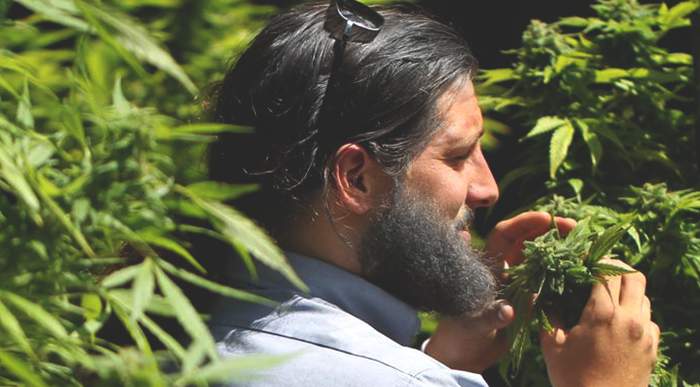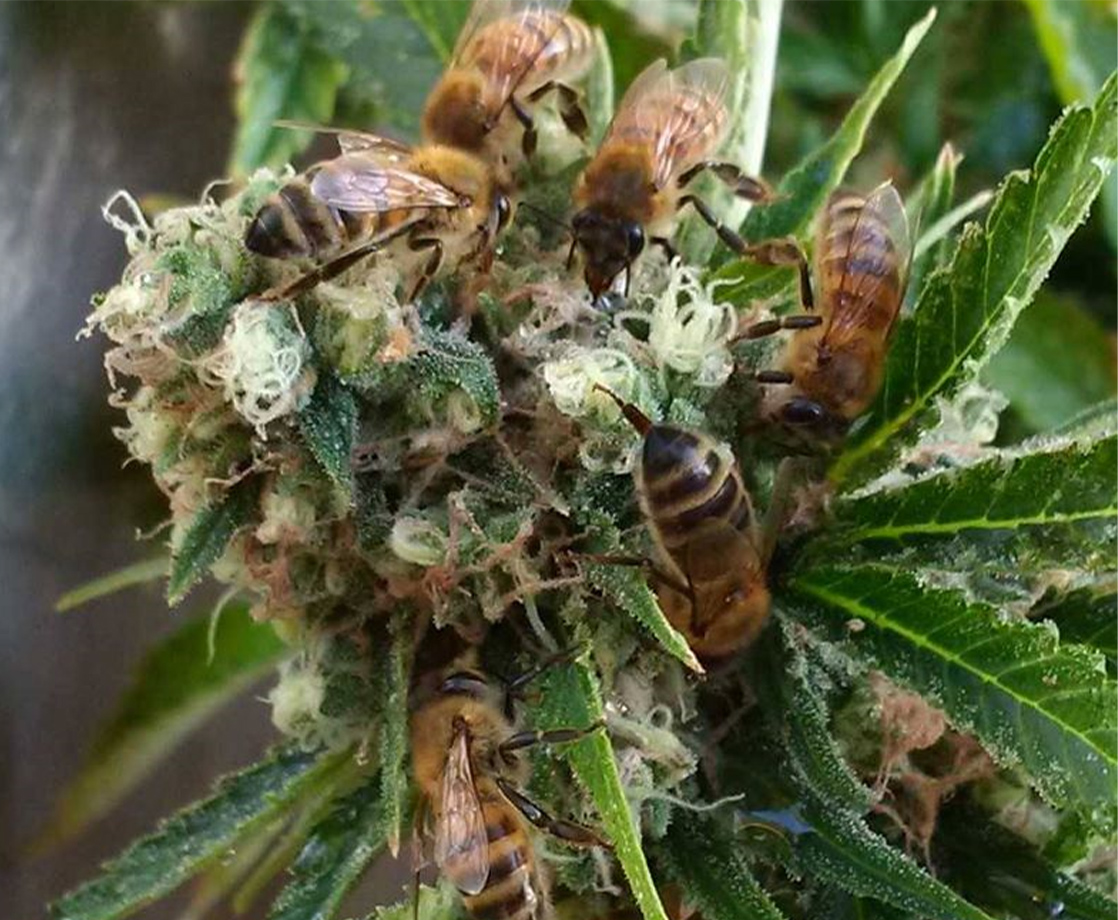“When I was in the military, cannabis was never a thought for me. It’s not an option and it’s very taboo,” says former Marine Captain and cannabis pioneer Ben Madden. “As you probably know, cannabis use is grounds for immediate dismissal from the service.”
When Madden was still active in the military, he was deployed to the Persian Gulf in 2011 with fellow Marine Aeron Sullivan, who later founded the online cannabis marketplace Tradiv. The two didn’t know it then, but around four years later they would be operating the world’s largest wholesale cannabis e-commerce platform together. The distribution platform connects cultivators, product manufacturers, and dispensaries in a streamlined and automated fashion. It’s essentially the Amazon for wholesale cannabis, but just for business-to-business (B2B) purposes.
While a rising number of military veterans are making a living providing security for marijuana businesses, others like Madden are getting fully immersed within the cannabis industry. As Tradiv’s director of operations and supply chain, Madden’s job is to facilitate the delivery between cultivators and the customer in both California and Colorado. From planning out all of the logistics and ensuring that the product finds its way from seller to buyer, the ex-Marine knows how to complete a task efficiently.
“Initially the veteran presence in cannabis was largely limited to security and jobs that translate more directly to military service, but what the industry is realizing is that when you hire a veteran you get a lot more than that,” Madden explains. “When you hire a veteran, and that person comes across an obstacle, it’s just, figure out how to get around it, over it, under it, through it. The bottom line is we have a strong sense of getting the job done no matter what we face.”
Another veteran who has become heavily invested in the cannabis community is ex-Marine Ryan Miller, who is now the co-founder and executive director of Operation EVAC (Educating Veterans About Cannabis), an organization that provides a community for like-minded military veterans to learn about and consume cannabis as a treatment. Unlike Madden, Miller had consumed cannabis before he’d enlisted in the military, and it’s what ended up saving him from depression and anxiety after he got out.
“There’s a gap in my sense of service where I’ll never feel satisfied, I didn’t die on the battlefield for my country. There’s a lot of depression and anxiety behind that, and cannabis helps significantly,” Miller says. “When I don’t feel like leaving my room for the day, isolating myself, cannabis helps me relieve that tension, that desire to isolate. It’s uniquely beneficial, it’s saved my life a couple of times.”
For his work with Operation EVAC, Miller conducts weekly 90-minute veteran support groups at cannabis dispensaries throughout the Bay Area. The first hour of his group begins with guided discussion and healing, followed by 20 minutes of yoga. After that, the ex-Marine distributes complementary cannabis to all vets in attendance, and also educates them on safe consumption.
These cannabis meetups provide veterans with a community packed with the same type of camaraderie they had while enlisted, making the transition into cannabis treatment easier. Though Operation EVAC is doing tremendous work in Northern California, Miller’s true vision is national. “A part of my long-term advocacy goal is to get safe access to cannabis for veterans in all states,” he says. “You shouldn’t have to leave your family, your community, and your roots to heal. A veteran in California should have the same experience as a veteran in Arkansas.”
Among veterans and the general cannabis community, there’s also been a major push to legalize cannabis as a medical treatment for Post-Traumatic Stress Disorder (PTSD), which has succeeded in some states, but has also failed vets on a national scale. Both Madden and Miller agree that the anecdotal evidence and potential benefits are enough to warrant the removal of cannabis as a Schedule I substance.
“I have friends who swear by it, who say that cannabis is the only thing that really helps their PTSD symptoms,” Madden says. “But unfortunately, we need more clinical studies, we need actual data that shows us how it helps, how it should be dosed and taken. Until we do that, we’re doing a disservice to veterans, to cancer patients, to those suffering from AIDS, and many others.”
As more veterans get involved with the cannabis industry and utilize it as a treatment for their ailments, it may ultimately lead to nationwide legalization, as more politicians will be pressured to stand behind the needs of returning troops. “Both the Democrats and the Republicans need the military,” says Miller. “They need veterans—you can’t lose face by turning your back on the troops. Some people really believe that veterans are the key to rescheduling for that reason. It gives the politicians a chance to save face and do the right thing.”
By providing career opportunities, community, purpose, and treatment for those debilitated by war, the cannabis movement is well-suited for military veterans. Many companies have jumped at the opportunity to help provide organizations like Operation EVAC with free cannabis products or spaces to hold support groups. At the end of the day, the cannabis industry—or, as Miller likes to call it, the “compassion industry”—is helping to restore compassion and contentment for those who need it most.











